MercoPress. South Atlantic News Agency
Economy
-
Thursday, July 6th 2023 - 09:53 UTC
Higher economic growth, less inflation projected in Brazil
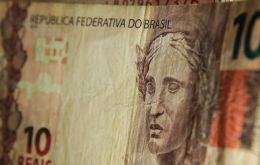
Brazil's Institute for Applied Economic Research (Ipea) has revised its forecasts and now foresees larger economic growth and smaller inflation this year, Agencia Brasil reported.
-
Wednesday, July 5th 2023 - 10:39 UTC
Uruguayan exports drop again in June
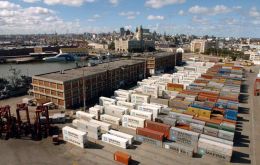
Uruguayan overall exports fell sharply in June for the second straight month this year, as reported in Montevideo. The new decrease in foreign sales “was mainly explained by the negative variations in soybean and beef sales.”
-
Wednesday, July 5th 2023 - 10:32 UTC
Bolivian leader in favor of switching from US dollars to yuan

Luis Arce Catacora, president of Bolivia, a Mercosur associate nation that has long been trying to become a full member of the bloc, said Tuesday during the 62nd Summit in Puerto Iguazú (Argentina) that it was time we “move[d] away from the [US] dollar to base ourselves on the [Chinese] yuan and strengthen our own currencies.”
-
Tuesday, July 4th 2023 - 10:55 UTC
Argentina insists on local currency agreements within Mercosur

Argentine Economy Minister Sergio Massa said Monday in Puerto Iguazú during a conference with his Mercosur peers on the opening day of the bloc's 62nd Summit in the province of Misiones, that “in order to strengthen intra-Mercosur trade, it is essential to consolidate local currency agreements among our countries.”
-
Tuesday, July 4th 2023 - 10:43 UTC
Brazil's beef and pork exports in June represented some US$ 980 million

Brazil's exports of beef and pork have retaken volumes from before the pandemic, as reported by Canal Rural. For example foreign sales of fresh, frozen, or refrigerated beef generated US$ 785.557 million in June (16 working days), with a daily average of US$ 49.097 million. The total amount exported by the country reached 154,625 tons, with a daily average of 9,664 tons, while the average price per ton was US$ 5,080.40.
-
Tuesday, July 4th 2023 - 10:27 UTC
Yellen travels to China to restore a healthy economic relation, “destabilization punishes both countries”

United States Treasury Secretary Janet Yellen will travel to China this week to restore ties, the Treasury Department announced. Yellen, who will be in Beijing from July 6-9, will meet with high-ranking representatives of the Chinese government but not China's President Xi Jinping.
-
Tuesday, July 4th 2023 - 10:17 UTC
Paraguayan FM calls for more efficient Mercosur
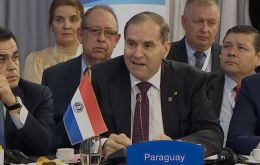
Paraguayan Foreign Minister Julio César Arriola Monday called for a “more effective and efficient” Mercosur during the bloc's two-day summit in Puerto Iguazu in the Argentine province of Misiones.
-
Monday, July 3rd 2023 - 10:09 UTC
Peru to assume pro tempore presidency of Pacific Alliance
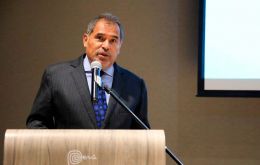
Peru will finally take over the pro tempore presidency of the Pacific Alliance (PA) on Aug. 1, after which progress is expected in trade, tourism, and investments, Foreign Trade Minister Juan Carlos Mathews said Sunday in a TV interview.
-
Saturday, July 1st 2023 - 10:53 UTC
Brazil/Argentina bilateral trade better, but still lacks the dynamism of past years
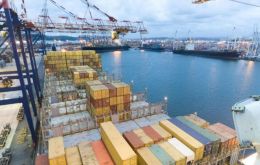
Trade relations between Brazil and Argentina are improving with an overall volume of US$12.5 billion in the first five months of this year. Brazil exported US$7.5 billion worth of goods and imported US$ 5 billion from Argentina, according to the Comexstat portal of the Brazilian Ministry of Industry, Commerce, and Services.
-
Saturday, July 1st 2023 - 10:49 UTC
Mercosur members challenge Argentina toll fee on Parana/Paraguay waterway
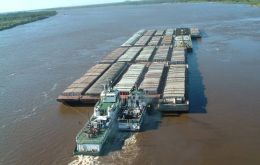
Delegations from Paraguay, Bolivia, Brazil, and Uruguay recently convened a meeting to challenge Argentina’s imposition of a toll fee on the Paraná-Paraguay Waterway. The neighboring countries argued that the evidence presented by Argentina did not provide enough services to justify the charge.
